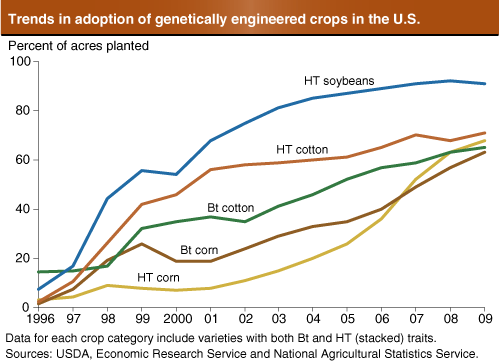In the Long Run: Growth in Adoption of Genetically Engineered Crops Continues in U.S.
- by Jorge Fernandez-Cornejo
- 9/1/2009
U.S. farmers have rapidly adopted genetically engineered (GE) soybeans, cotton, and corn since their commercial introduction in 1996 because of their economic benefits. Herbicide-tolerant (HT) crops can be treated with selected herbicides to provide effective weed control. HT variety adoption has expanded faster for soybeans than other GE crops. Insect-resistant (Bt) crops contain a gene from the soil bacterium Bacillus thuringiensis that produces a protein toxic to specific insects. In 2009, Bt varieties accounted for 65 percent of U.S. cotton acreage and 63 percent of U.S. corn acreage. Adoption of crop varieties with both Bt and HT traits has accelerated and now accounts for 48 percent of cotton acres and 46 percent of corn acres.


